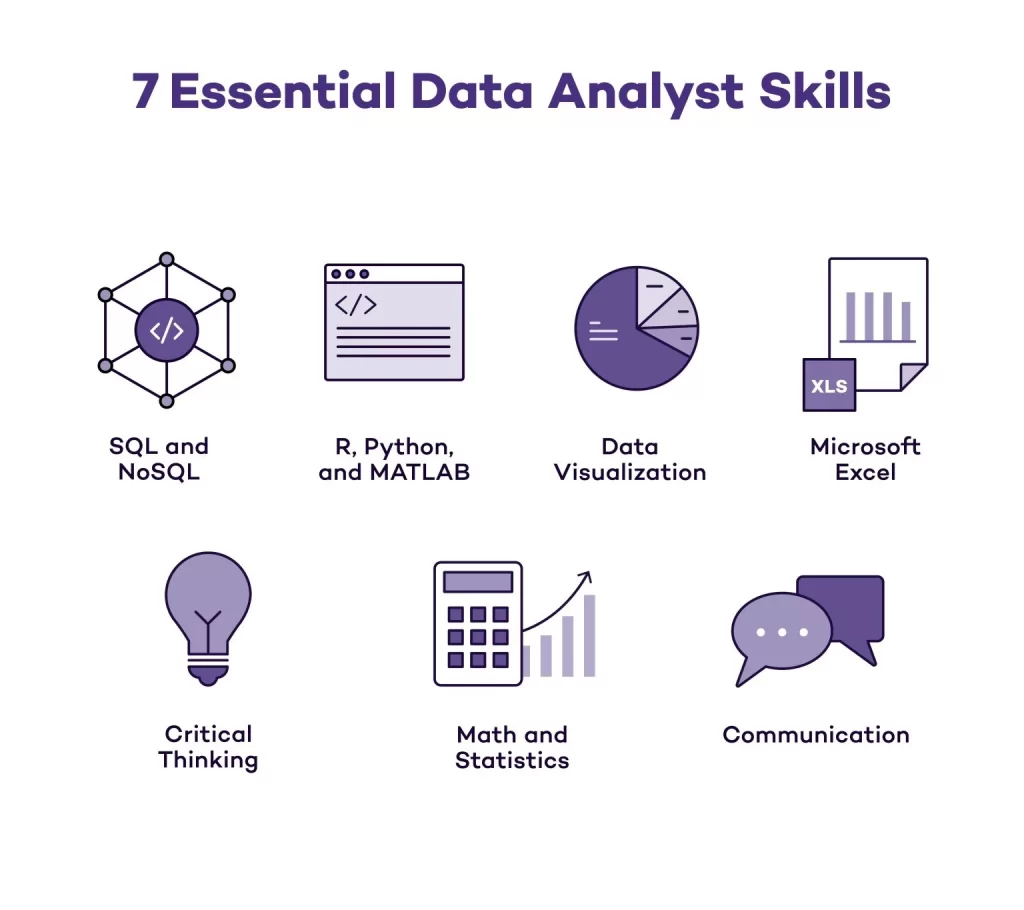Top 5 Essential Skills Every Data Analyst Should Have
In today’s digital world, data is everywhere. From social media interactions to business transactions, massive amounts of data are generated every second. But raw data alone has little value. The true power lies in analyzing this data to uncover patterns, trends, and insights that drive informed decision-making. This process is known as data analysis.
Understanding Data Analysis
Data analysis is the process of inspecting, cleaning, transforming, and interpreting data to extract useful information. It is widely used in various industries, including finance, healthcare, marketing, and technology. By leveraging data analysis, businesses can optimize operations, improve customer experience, and make strategic decisions.
Key Steps in Data Analysis
- Data Collection – Gathering relevant data from different sources such as databases, spreadsheets, APIs, or manual inputs.
- Data Cleaning – Removing duplicates, handling missing values, and correcting errors to ensure accuracy.
- Data Processing – Transforming raw data into a structured format suitable for analysis.
- Exploratory Data Analysis (EDA) – Using statistical techniques and visualizations to identify patterns and relationships.
- Data Interpretation – Drawing conclusions and making data-driven decisions based on findings.
Tools Used in Data Analysis
Several tools and programming languages help simplify the data analysis process. Some of the most popular ones include:
- Microsoft Excel – Ideal for basic data analysis, pivot tables, and charts.
- SQL – Used for querying and managing structured databases.
- Python & R – Powerful programming languages for statistical analysis and machine learning.
- Power BI & Tableau – Data visualization tools that help present insights in an interactive and easy-to-understand format.
Importance of Data Analysis in Business
- Better Decision-Making – Helps organizations make informed choices based on trends and evidence rather than intuition.
- Improved Efficiency – Identifies bottlenecks in processes and suggests improvements.
- Enhanced Customer Experience – Personalizes offerings based on customer preferences and behaviors.
- Competitive Advantage – Enables businesses to stay ahead by predicting market trends and customer needs.
Top 5 Essential Skills Every Data Analyst Should Have
- Statistical Knowledge – Understanding probability, distributions, and statistical tests helps analysts make sense of data trends and patterns.
- Data Visualization – Proficiency in tools like Tableau, Power BI, or Matplotlib allows analysts to present insights in a compelling and understandable way.
- SQL & Database Management – The ability to query databases and manipulate structured data is crucial for retrieving meaningful insights.
- Programming Skills – Knowledge of Python or R is essential for automating data analysis, performing machine learning, and handling large datasets.
- Critical Thinking & Problem-Solving – Analyzing complex datasets requires logical thinking and the ability to draw meaningful conclusions from raw information.
Getting Started with Data Analysis
For beginners, learning data analysis starts with understanding basic statistics, using Excel or Google Sheets, and gradually moving to more advanced tools like Python and SQL. Online courses, tutorials, and hands-on projects can also accelerate the learning process.
Final Thoughts
Data analysis is a crucial skill in today’s data-driven world. Whether you are a business owner, analyst, or aspiring data scientist, mastering data analysis can open doors to endless opportunities. At I4 Tech Integrated Service, we specialize in training and providing data analysis solutions to help businesses harness the power of data effectively. Ready to start your data analysis journey? Contact us today!


